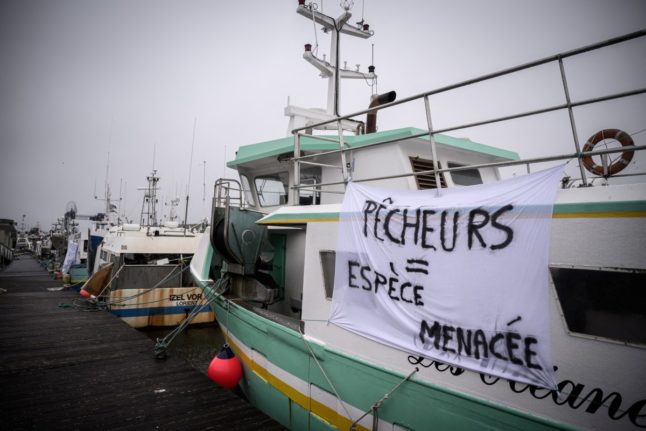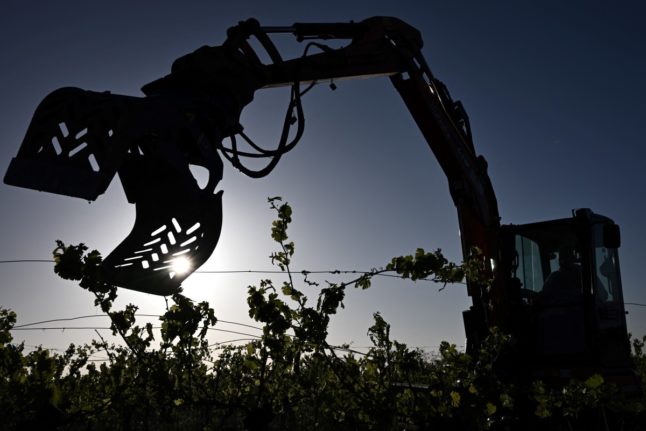Around 200 people protested in the port of the town of Saint-Malo in a show of anger against the Annelies Ilena, a massive fishing trawler with an on-board processing factory, one of the biggest such vessels in the world.
“It’s an aberration,” said Nathan Kaufmann, a 27-year-old fisherman who travelled from his home region of South Finistere.
“I have a quota of 100 kilos of mackerel per week: the trawler can catch 400 tonnes in one day, it would take me 70 years to do the same.”
Flying the Polish flag and owned by a Dutch shipowner, the Annelies Ilena, 145 meters long and 24 meters wide, is to replace the Joseph Roty II, built in 1974 and which will now remain in dock.
The Saint-Malo Fishing Company said at the beginning of February that it had 15 million euros of financing for the installation of a production unit for surimi – a fish paste used especially in Asian cuisine – on board the Annelies Ilena.
Too large to enter the port of Saint-Malo, the factory ship will have to dock in the Netherlands. The surimi produced on board will reach the processing unit located in Saint-Malo by road.
“This factory boat is going to take fish to make paté… unload it in the Netherlands then bring everything back by truck” to Saint-Malo, said another fisherman, Simon, who did want to be identified further.
The protesters formed a human chain along the fishing port of Saint-Malo, with slogans including “disarm industrial fishing” and “murderers of the seabed”.
Matthias Tavel, a member of parliament for the hard left LFI party, described the Annelies Ilena as “a bulldozer of the sea… madness from an ecological point of view.”
Green European lawmaker Marie Toussaint welcomed “the convergence of struggles” against the Annelies Ilena, whose nets are “capable of swallowing two Eiffel Towers, much more destructive than (those of) small-scale fishing.”
The Annelies Ilena “risks taking fishing quotas from smaller trawlers, to the detriment of local fishermen”, said the environmental campaign association Bloom.



 Please whitelist us to continue reading.
Please whitelist us to continue reading.
Member comments